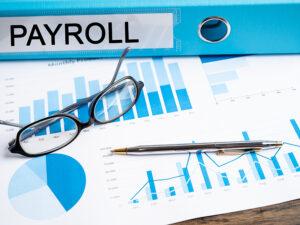Diagnosing the Value of a Distressed Business
Kirsch CPA Group
Apr 01, 2022

Over the last two years, market conditions — from cost increases and forced shutdowns to shortages of labor and supplies — have taken their toll on many businesses. While owners of distressed businesses may hope to turn things around, some will unfortunately shutter. Valuation is a prophecy of the future, not the past. So valuing a financially troubled company requires special treatment.
Diagnosing the Situation
Valuing a distressed business is similar in many ways to valuing a healthy one: The valuation professional evaluates financial information and examines the business and its industry to assess the company’s ability to generate earnings. But troubled companies don’t behave in quite the same way as healthy companies, so valuators must approach them a little differently.![]()
One of a valuator’s biggest challenges in valuing a struggling company is normalizing its operating results. Most valuations, even of healthy companies, involve some normalization. The valuator adjusts the company’s operating results to exclude unusual items — such as nonrecurring income or expenses. This allows the valuator to project earnings under “normal” conditions.
Determining the causes of a company’s poor performance is critical. If the company got into trouble because of poor management or excessive debt, it could have a great deal of value to a buyer with a stronger management team or greater access to capital. But if the company is struggling because of reduced demand for its products or services or because its technology has become obsolete, it may be difficult — if not impossible — to restore it to profitability.
Prescribing a Valuation Method
For healthy companies, past performance is often a reliable predictor of future success. But for troubled companies, valuations must be essentially forward-looking. The key is to identify what caused the company’s financial distress, determine whether the problem can be fixed and develop a picture of the company’s future earnings after management has turned operations around.
For this reason, valuation pros usually use income-based methods, such as discounted cash flow analysis, to value troubled companies. Market-based methods — where valuators apply price-to-earnings multiples or other measures derived from transactions involving comparable companies — are difficult if not impossible to use. Most market data is drawn from transactions involving healthy companies, which can’t be applied to troubled companies without complex (and potentially problematic) adjustments.
The cost approach also may be particularly relevant when valuing a distressed business. While healthy companies are almost always valued as going concerns, a distressed company may be worth more in liquidation. So the valuator needs to determine its liquidation value for comparison.
Proper Treatment
Distressed companies operate under extraordinary circumstances, so different rules apply. Our business valuation experts have experience working with struggling companies and can help determine what’s appropriate for your case. Contact us for more information.
More Resources

About The Author
Kirsch CPA Group is a full service CPA and business advisory firm helping businesses and organizations with accounting,…





